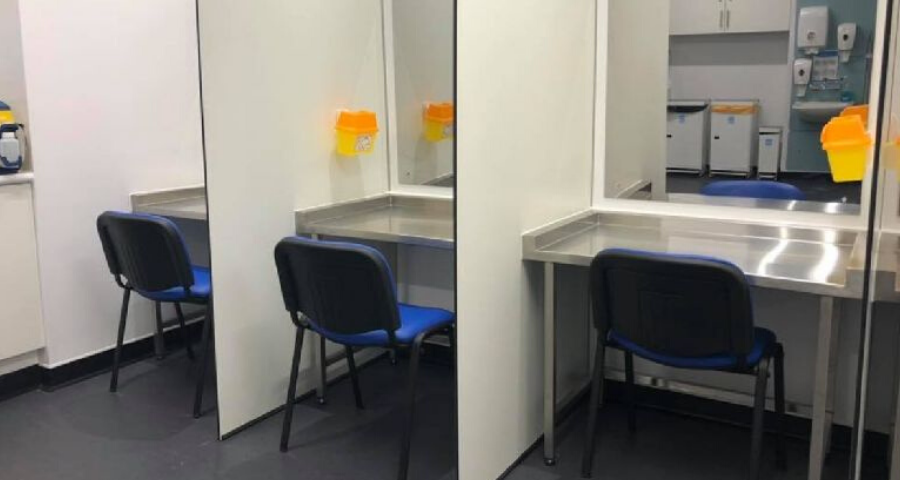Research has found that the majority of people in Scotland would support the introduction of drug consumption rooms (DCRs).
Drug consumption rooms, or safer drug consumption facilities, primarily aim to reduce the acute risks of disease transmission through unhygienic injecting, prevent drug overdose deaths and connect people with addiction treatment and other health and social services. They also seek to contribute to a reduction of drug use in public places, drug-related litter and other related public order problems linked with open drug scenes.
The study, conducted by Glasgow Caledonian University, alongside Liverpool University and Liverpool John Moores University, found that out of 1500 Scottish people surveyed 61% of people agreed with the introduction of DCRs in Scotland, whilst only 15% disagreed, and 24% were unsure.
Participants were presented with six different narratives of messaging around drug consumption rooms and the results showed that people were more supportive when the messaging provided factual information, addressed concerns of DCRs, and included stories from families affected by drug-related harm who support DCRs.
Drug consumption rooms have repeatedly been put forward as one way to address the increasing number of drug related deaths in Scotland. Although the Scottish Government has backed introducing DCRs, legal permission is needed from the UK Government who have thus far rejected the proposal.
Speaking to the Herald, Dr Andrew McAuley, Senior Research Fellow at Glasgow Caledonian University, stressed that the policy idea can be resurrected and should remain on the table.
He said: “Harms related to drug use in Scotland are at record levels and Glasgow is at the epicentre with an ongoing HIV outbreak and some of the highest drug-related death rates in the country.
“As researchers, we’ve continued to build the evidence base for a DCR in the city by looking at the drug-related harms that such a facility would seek to address including our work on HIV, public injecting, and more recently whether people who inject drugs would use it.
“This latest research not only suggests that Scots support DCRs but also that giving the public more information about the benefits of DCRs such as reducing drug deaths among people who use them, and also that they can save the NHS money because of the overdose deaths and infections that they prevent, would make them more supportive.”

